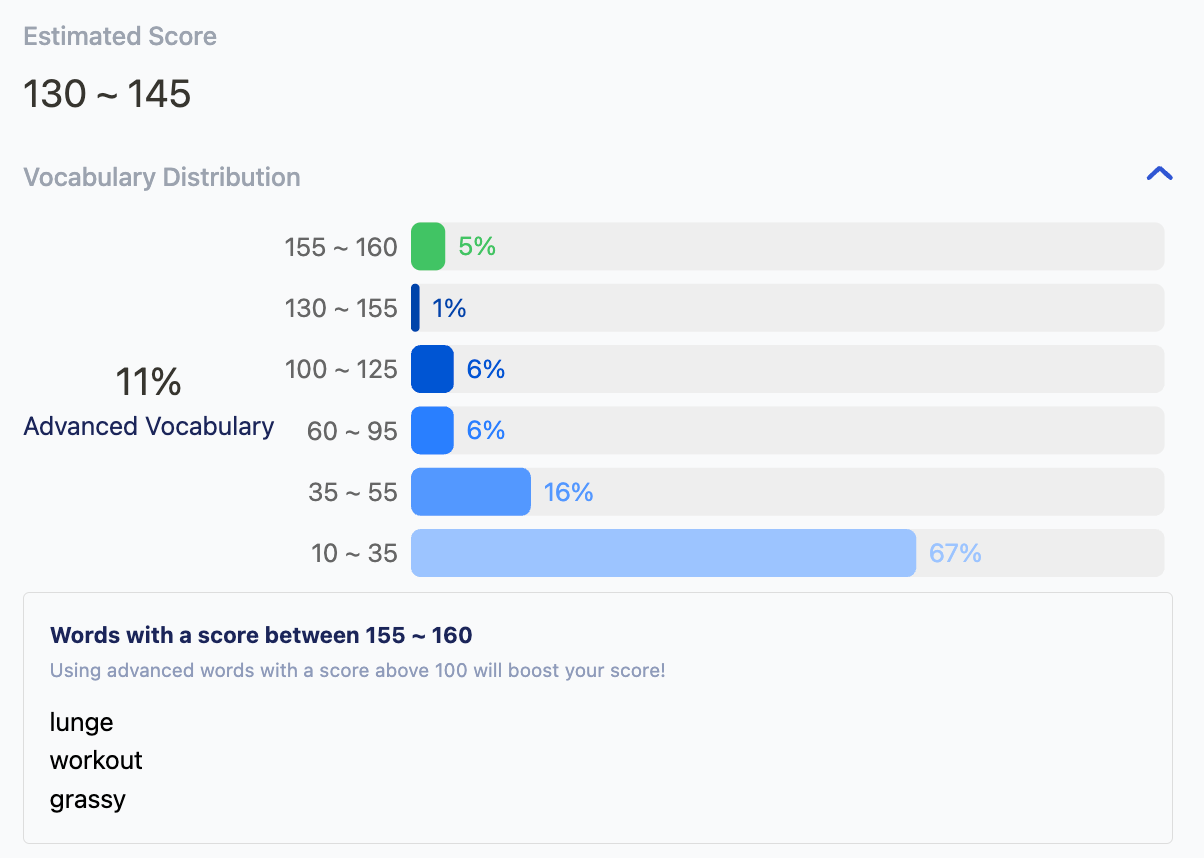Does Duolingo check pronunciation on the Duolingo English Test?
Yes. On speaking questions on the Duolingo English Test, Duolingo will evaluate your pronunciation.
Let's take a look at exactly what Duolingo is looking for in terms of pronunciation.
Table of Contents
- What aspects of pronunciation is Duolingo grading?
- How to improve your pronunciation
- How to practice speaking questions for the Duolingo English Test

What aspects of pronunciation is Duolingo grading?
In the official guide to the test, Duolingo provides these 2 scoring criteria related to pronunciation:
- Fluency: speed; natural use of pauses; and reliance on filler words, repetition, and starting/stopping
- Pronunciation: intelligibility, individual sounds, word stress, sentence stress, and intonation
Let me explain each aspect of these 2 criteria.
- Speed: Are you not speaking too quickly or too slowly?
- Natural use of pauses: Most importantly, you need to take a short pause at a comma and a long pause at a period.
- Reliance on filler words: Filler words are words like, "Um," "You know," and "Like." It's okay to have pauses and silence while you are speaking, In fact, as we just saw, Duolingo wants you to pause! You don't need to use filler words to fill all the silences.
- Repetition: If you make a mistake, it's okay to correct yourself. But, you don't want to do this too much. It's important that while you are speaking, you keep moving forward, putting one word after another.
- Starting/stopping: You shouldn't start and stop suddenly while you are speaking. You want your words to flow in an even, consistent manner.
- Intelligibility: This is just a fancy word which means Is it easy to understand the words that you are saying?
- Individual sounds: Duolingo wants to see that you are pronouncing each part of each word correctly.
- Word stress: While you are pronouncing a word, are you putting the stress on the right syllable?
- Sentence stress: While you are saying a sentence, are you putting the stress on the right part? For example, if you are disagreeing with someone and you say, "In my opinion, we should elect a new president" it would be natural to place the stress on "my." This indicates that your opinion is different than the other person's.
- Intonation: This is closely related to the previous 2 criteria focused on stress. A good example of intonation is with questions. When you are asking a question, you should end on an upward inflection.
In this lesson, we go into depth about how Duolingo grades speaking questions:
How to improve your pronunciation
We have an entire video in which we cover the best strategies, tips, and tricks for speaking questions on the Duolingo English Test, including general speaking tips:
Here are some useful tips as well:
1. Don't speak too quickly
In general, when speed is a problem for someone, it is because they are speaking too quickly. This is because when we are nervous or stressed – which happens when we take a test – we speak more quickly.
On the test, it is important to remember to stay relaxed and don't rush while you are speaking.
2. Don't panic if you make a mistake
Even native speakers make mistakes when they speak. If you make some mistakes, you can still get a very high score on the DET.
When you do make a mistake, don't panic. If you realize your mistake quickly enough, you can just quickly correct yourself. The most important thing is to keep speaking. You don't want one mistake to force you to stop suddenly and not speak for a long time or to try to correct one mistake multiple times. It is better to just keep moving forward in your response.
3. Enunciate
Enunciate just means to pronounce words clearly. On the test, you should speak a little more loudly than you do naturally and you should really try to pronounce each word and syllable clearly. This will help to get you more points.
4. Don't be afraid of silences
Because we are stressed and nervous when we take tests, many test takers are uncomfortable with silences during speaking responses. They feel that they need to be constantly saying something. But the opposite is true! Duolingo wants you to pause during your response at the appropriate places – short pauses for commas and long pauses for periods.
5. Practice pronouncing difficult words
There are always some words that are difficult for us in foreign languages. You should practice those words so that you can pronounce them correctly and not lose points on the test.
6. Avoid words that are difficult for you
However, if you cannot manage to learn how to properly pronounce a particular word, then don't use! Learn another word that you can pronounce more easily and get in the habit of using that word instead.
How to practice speaking questions for the Duolingo English Test
With Arno, you can practice all the speaking questions on the DET as much as you like for free. All you need to do is to create your free account (click here) and you can access unlimited practice questions for every question type. You will also get a full, free mock test with scores and subscores!

If you purchase credits, then Arno will also give you an instant estimated score and feedback on your responses so that you can improve your grammar and vocabulary to get a higher score. It's like having a private tutor review your answers!

